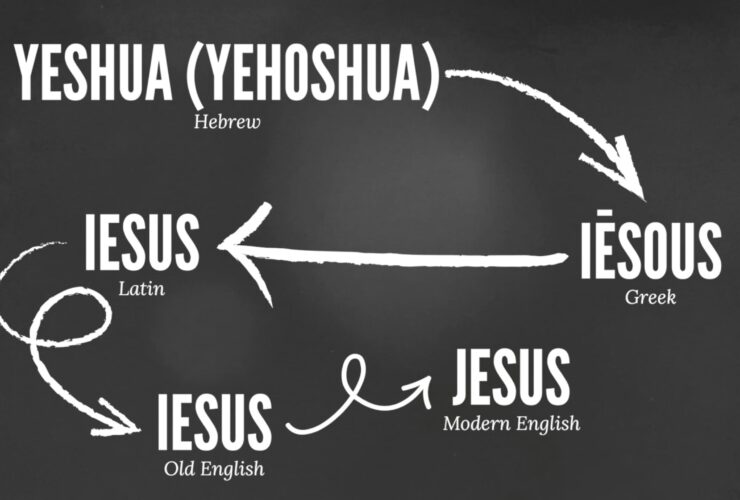It seems like more and more people nowadays are caught between a rock and a hard place – the rock the Church and the hard place their head. Perhaps you have seen signs, “Sinners go to Hell!” or have heard people say, “the Church hurt me,” or a soft bark in the distance, “Don’t judge me!” While these judgmental accusations cry out from polarized sacred spaces, the blame game is nevertheless entrenched in obstinacy, pettiness, tactlessness, injustice, and a lack self-reflection on all fronts.
Yes, it’s true–––the road to church is paved with good intentions. On the left hand, it’s catapulted by postmodern dogma, cloaked in the smog of unity and social justice warriors fighting for the immutable rights of moral relativism––however that works. On the right hand, Bible verses are weaponized into signs of mass destruction, hellbent on burning the retinas of your soul, if you dare lay eyes upon it. Both hands are guilty for churning the cauldron of cultural Christianity, leading to a great bubbling over of displeased citizens.
As a countless number of complaints, revenge tweets, and empty seats pile up inside the Church, the motivations of such are nothing shy of mixed metaphors and non sequiturs: Escaping by the skin of their teeth, yet scot-free of moral responsibility. As if the doors of Church are locked on the inside! In the meantime, to say we’ve reached a boiling point is an understatement – Christianity is at a melting point.
In some cases, this “church hurt me” attitude is a displaced sentiment toward a local church that is unscrupulously pitted against Christianity as a whole. Like a bad breakup in a high school drama, the accusations often follow a departure from church fellowship, or worse, loathing Christianity as though it were Hell on earth, as if no one outside of the Church has ever gossiped, insulted, slighted, disrespected or hurt anyone before. And so, a social contract is signed (or ripped up), and all go their merry way.
Then, in a striking reversal of substitutionary atonement, the blame is put on God for poor human behaviour. Or, perhaps, it is no coincidence at all.
“They take the “rock of offense” into their own hands–––perhaps, a bit too literally. Twirling it around their head as each sinner takes one step closer and closer.”
Notwithstanding that this self-justified exodus reveals an innate desire to sever interpersonal relationship from objective morality by putting our self on top of the food chain and personifying the Church to bear the brunt of our bestial tendencies, but in so doing we also get caught red-handed writing a new metanarrative, one that over-generalizes the global Church into a black-and-white systemic lump of bigotry and mischaracterizes all local churches under one roof as equal partakers in “judging”. In short, we self-victimize and then heroize the victim.
And, I’m sure, I sound a bit “judgy” too. Rest assured, this is not so–––maybe a bit cheeky. After all, if one judges the Church for judging, what is the issue? Even if our moral standards are grounded in social contracts, moral judgment is being had by both parties. How, then, is judging wrong? But, suppose hypocrisy is negotiable (or indiscernible), we would still be guilty of a logical contradiction. Are we not to ever draw conclusions again? The answer goes without saying.
In the name of no judgment, we either abandon reason or forsake morality. What remains is the deep, deep, ankle deep presupposition that judgment can, in its very nature, be wrong. By what standard can that be so? If we loosen all judgment, what is the basis to say judgment is wrong? And who is the judge to determine it unlawful? It is nothing but legalism masquerading as virtue! In the words of Francis Schaeffer, “Modern man has both feet firmly planted in midair.”

Statues of the apostles on the Notre Dame Cathedral in Paris, France
But I shouldn’t be so harsh. Some people who leave the Church do have a point. It is true that many congregants and churches, time and time again, overstep in their salvific role and end up joining hands, for better or for worse, in tactless gossip and finger pointing pop-culture. They take the “rock of offense” into their own hands–––perhaps, a bit too literally. Twirling it around their head as each sinner takes one step closer and closer. In a faithless act of juvenile pride they sling, miss the mark, and cast the rock into the sea. Instead of leaving, however, these folks stick around and slowly chip away at the Church’s witness and reputation. And sadly, some church leaders or pastors may never approach them about it, leaving them to their own devices. Or worse yet, they participate. As the right hand points its crinkly finger at those who sin or doubt, the left hand is plucking those sympathetic folks out of the Church, saving them from the flames of ridicule.
Judgment in New Testament Context
In spite of the fact that the misconstrued Biblical aphorism “Do not judge” (Matthew 7:1) primarily holds a spiritual and soteriological connotation that means “do not condemn”, the application of how that soteriological judgment applies is very broad. It’s not just a matter of accusing misconduct, speaking about the spiritual destination of others or invoking heaven or hell necessarily, it’s how one consciously and subconsciously applies condemnation in their day-to-day life through the treatment of others (cf. Matthew 7:1-5). We judge others through our thoughts and behaviour (cf. Matthew 5:21-25). So, the application of judgment is not just spiritual chitchat, it’s lived in two ways – vertical and horizontal – with the former constituting the latter.
Vertical Judgment. Generally, the use of the word judgment in NT context pertains to how we view one’s soul or heart, and for that matter, “Who can [truly] know it?” (Jeremiah 17:9) As the Church, the “bride of Christ”, it is not our prerogative to determine or delineate salvation (1 Corinthians 7:16), especially to condemn as if it were a matter of fact – to question such is only natural since people slip, stumble and fall in varying degrees. But to assume and proclaim with absolute certainty the foreknowledge that only God intends to know is not just beyond folly but outright irreverence for His sovereignty.
Not even Paul, when judging deplorable acts of conduct of two specific people, took the liberty to condemn their souls, but invoked final restitution (1 Corinthians 5:1-5; cf. 2 Corinthians 2:3-11; 7:8-12). He also seems to criticize this soteriological way of thinking, one that desires to know who is saved and who is not by likening it to one who assumes the role/throne of the Father who raised Christ from the dead: ““Do not say in your heart, ‘Who will ascend into heaven?’” (that is, to bring Christ down) “or ‘Who will descend into the deep?’” (that is, to bring Christ up from the dead).” (Romans 10:4-9; cf. Deuteronomy 30:11-14). Or as Jude so boldly discerns when writing of our common salvation and corruptible behaviour within the Church: “But even the archangel Michael, when he was disputing with the devil about the body of Moses, did not himself dare to condemn him [Satan] for slander but said, “The Lord rebuke you!”” (Jude 1:3, 9-10, 22-23). Then he chastises those hypocritical church-going slanderers as irrational animals (v.10). If that doesn’t radically shift our perspective on how we ought to judge, nothing will.
Seizing the right to cast condemnation not only blurs the line of sovereignty – that is the distinction between God’s and man’s role, responsibility, and relationship – it also has very practical reasons, two of which ought to hold our attention.
First, we are called to be like Jesus Christ, who did not come to condemn but pointed to the Father as the final Judge (John 3:16-18, 12:47-48). We are to be the light of the world, an example of God’s love (Matthew 5:14-16), so that people can see God’s character on earth as it is in heaven. If a person rejects Love, genuine and sincere love, they stand condemned for against such there is no law (1 Corinthians 13:13; Galatians 5:22-23; Mark 12:29-31). However, if a person rejects fearmongering, tactlessness, injustice, mean spiritedness, or grouchy gossip, puffing themselves up and pushing others down, I think their rejection is well met. In this case, they may not be rejecting Christ at all, but a misrepresentation of Christianity. We must be conscientious, not belittling.
Second, we do not have foreknowledge and therefore lack absolute certainty in this regard. Time, in its totality, has yet to unfold to reveal such information concerning condemnation, which renders any such chatter nothing more than a bald-faced lie. If anyone says, “Go to Hell!” they are usurping God’s throne – a dangerous line to walk. Lest we forget Christ’s explicit warning: “For in the same way you judge others, you will be judged, and with the measure you use, it will be measured to you.” (Matthew 7:2)
Is it not painstakingly obvious? We treat others by how we judge ourselves. And what right do we have to judge others if we are not to judge ourselves? As Paul put it again, “I care very little if I am judged by you or by any human court; indeed, I do not even judge myself. My conscience is clear, but that does not make me innocent. It is the Lord who judges me. Therefore judge nothing before the appointed time; wait until the Lord comes. He will bring to light what is hidden in darkness and will expose the motives of the heart.” (1 Corinthians 4:3-5) God is the final judge.


Horizontal Judgment. We are given the moral responsibility to identify, assess, discern and judge each situation case-by-case, especially the moral and spiritual weight of it; where in a particular moment a person, secular or Christian, may exhibit immoral/non-Christian behaviour that strives against the “fruits” of true conversion or any salvific signifiers that may suggest they are being called by God, perhaps, unconsciously or impetuously (Galatians 5:22-25) In fact, Paul even encourages us to judge amongst ourselves here and now because of our future role in judgment (1 Corinthians 6:1-7). But this judgment or moral assessment does not affirm condemnation, it just shows that a person is living a life that may lead to condemnation if left unresolved, not that they are condemned absolutely. For if so, we nullify the apostolic teachings to forgive, comfort, and love those who once stood utterly depraved as apostates and returned to the faith, so they are not overwhelmed with sorrow (2 Corinthians 2:6-8; James 5:15-16, 19-20). Or did I miss the memo when assumptions took charge of the facts? C.S. Lewis was bang on in saying, “When a man who accepts the Christian doctrine lives unworthily of it, it is much clearer to say he is a bad Christian than to say he is not a Christian.”[1]
It is our proper worship to suffer, endure, and persevere for those who struggle with sin, to love and lead them out of evil so they will not suffer loss or be scathed by the flames, so to speak (1 Corinthians 3:15, 4:11-13; Matthew 18:7-9; Romans 8:16-17). Since we are all capable of sin – and we all sin – a person’s salvation is an assessment of potential based on evidence, such as a lack of perseverance, and we ought to treat it as such. It’s a probabilistic assertion, not a truth claim.
Just because someone may walk on the wrong path now, does not mean they will forever follow the wrong path. Insomuch the Church must illuminate Christ and be that light on a hill for the lost who are sincerely searching for the right path. One must make a judgment call when help and guidance necessities manifestation with believers and unbelievers alike, so that grace, mercy, and love may abound freely – something Christ did for us while we were still sinners (Romans 5:8), and that we may forget all too often.
“But even the archangel Michael, when he was disputing with the devil about the body of Moses, did not himself dare to condemn him [Satan] for slander but said, “The Lord rebuke you!””
Jude 1:9-10
Now, it is not difficult to get upset by the deliberate abuse of our freedom of expression: ignorant gossip, arrogant allegation, finger pointing, defamation of character, slander, mockery, ridicule and like manner intentions aimed to hurt (cf. 1 Corinthians 4:20). I also do not believe public shaming those outside of the public eye has done any one any good whatsoever, especially in a depersonalized world of mass communication (Matthew 18:15-17). I’m sure you can recall the compassion Jesus Christ had for the woman caught in a shameful act of adultery that was made public, “He that is without sin among you, let him first cast a stone at her.” (John 8:7) Finalizing His point with, “Neither do I condemn you; go and sin no more.” (John 8:11) [emphasis added] Our judgments ought to be weighed contextually.
Christ came for us sinners, and a local church is a place where sinners of all sorts – hypocrites, too – go for help, to seek refuge as a means to cast out sinful thought and behaviour, or at least with the intent to fix something wrong (cf. 1 Corinthians 6:9-11). The transition of which can take quite some time, years even. Failing to do so is part of being human. It does not reflect Christ or the Church. That being said, a pastor, preacher, or elder, or anyone who holds a public office of spiritual authority as the ambassador of God, requires an altogether different approach of accountability and Church discipline (1 Timothy 5:19-21). As James says, teachers will receive a stricter judgment, even though we all stumble in many ways (James 3:1-2). Either way, while there is no excuse for such ill-mannered or immoral conduct on a congregational or institutional level, it does supersede the urge to self-victimize and socially reduce the Church to intolerant, judgmental bigotry.
Application
If you part ways with Christianity and the Church for “earthly affairs”, it tacitly affirms a deep issue that may go unresolved: the power other people have over your life. In some instances, it can presuppose that popular opinion is worth more than God’s. One ought to consider the minister of a church who is a victim of ridicule as well, often altruistic without any advantageous incentive, and yet does not waiver attendance.
However, when a church pokes, prods, or pushes a person (or family) out of what should be a place of refuge, humility, sincerity, and honesty, there is a deep misunderstanding of what love means. When a person is living in sin, we need to address it with honesty, compassion and a genuine care for the final judgment of their soul. Lest that person finds themselves in a new church where the city is the sanctuary, media the pulpit, and our moral judgments are bound like Sisyphus, forever pushing the boulder of social acceptance up the hill of popular opinion. We ought to reconsider how Jesus instructs the Church to handle self-proclaimed believers living sinfully in Matthew 18:15-17, “if they refuse to listen even to the church, treat them as you would a pagan or a tax collector.” (v.17) and then compare that resolve to Christ’s iconic parable (Luke 10:25-37) and his explicit counter-cultural use of a “good” Samaritan instead of, say, a fisherman or Roman citizen, since Samaritan’s were seen as lower than pagans and tax collectors, heretics to Jews but redeemable in Christ.
If you hold Christianity accountable for judging, you unwittingly enunciate an implicit assumption that the Church understands or upholds an objective moral standard; one that, unfortunately, many Christians engulfed in the culture dare not compare with honest representation. After all, we only hold people accountable who have the capacity to be responsible, we expect a minister to be moral, we expect a judge to be lawful; in the same way, we expect more from the Church than we do of the world. I suspect at some level we are all aware of it. People leave the Church because the impression and ideal of Christ is not fully met in the Church and in themselves.
For the same reason the Church has no right to condemn individuals and people groups, we likewise cannot condemn and lump misconduct on a local level with the global Church, and that even goes for Church leaders. Even though a pastor, priest or minister is, quite literally, the ambassador of a single church’s theology and, consequently, reflects God with deeper saturation, it is still a local issue.
Finally, if you think judgment in its very nature is wrong, then, I suppose, you would assume truth to be a farse as well. And without truth as a basis for judgment, honesty reduces to agreeableness, trust to predictability, and loyalty to percentages. If no truth, then no honesty. If no honesty, then no trust. If no trust, then no loyalty. If no loyalty, then no love. As Michael Ramsden so eloquently expressed, “Love exists in the presence of judgment, not in the absence of it.”
For those in the Church, does it not seem wiser to offer a helping hand rather than to point out the problem and offer no practical or prayerful solution? Identifying sin is one thing, extending the Solution is a whole other story. If we truly believe that Christ died for our sins, then we must allow room for self-realization of self-misdirection, however difficult, and keep our doors open and hands extended for the conviction, confession and repentance of sin. And does God not do the same? Through the conviction of the Holy Spirit, our inner self becomes more and more transparent, and the spiritual weight of what sin means judges it quite tenaciously; if it were not for God’s forgiveness, our conscience would be overwhelmed with insatiable sorrow. For keener ears, let it be said; a lack of full submission is the issue at hand. A rock is lodged between the head and heart, and it’s not Christ. Perhaps, hopefully sooner than later, people will stop going to church and start being the Church. A resolve we all ought to pray for!

Matlock Bobechko is the Chief Operating/Creative Officer of Bible Discovery. He is an eclectic Christian thinker and writer, award-winning screenwriter and short filmmaker. He writes a blog on theology, apologetics, and philosophy called Meet Me at the Oak. He is also an Elder at his local church.
[1] C.S. Lewis, Mere Christianity (New York: Touchstone, 1996), 10-11.






